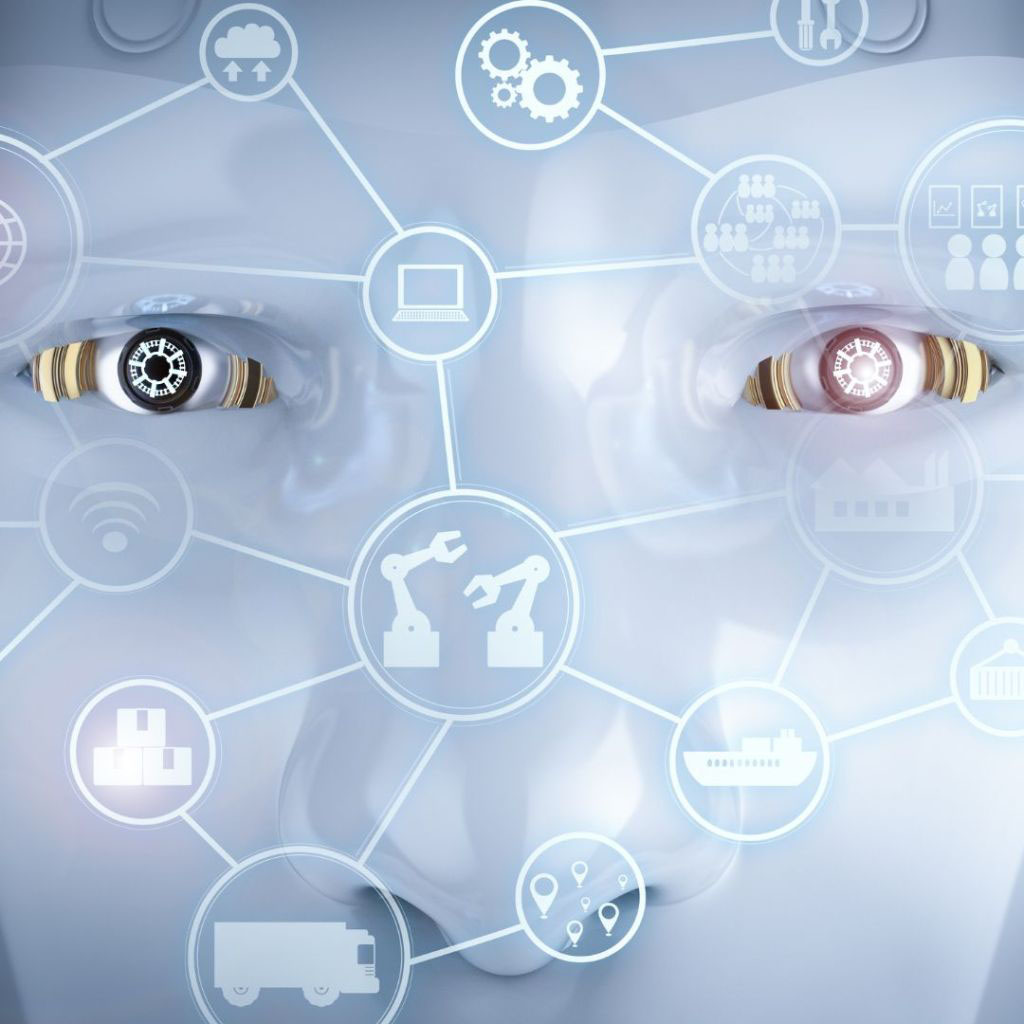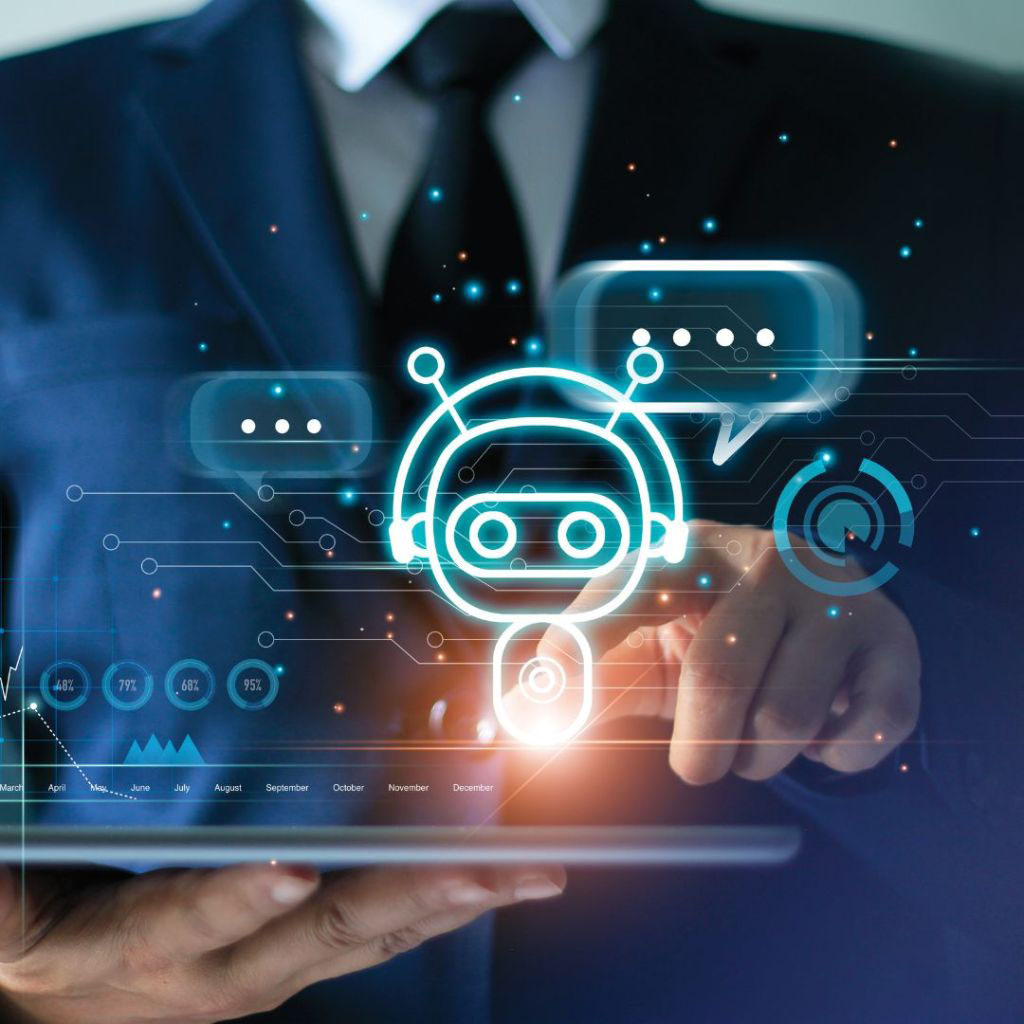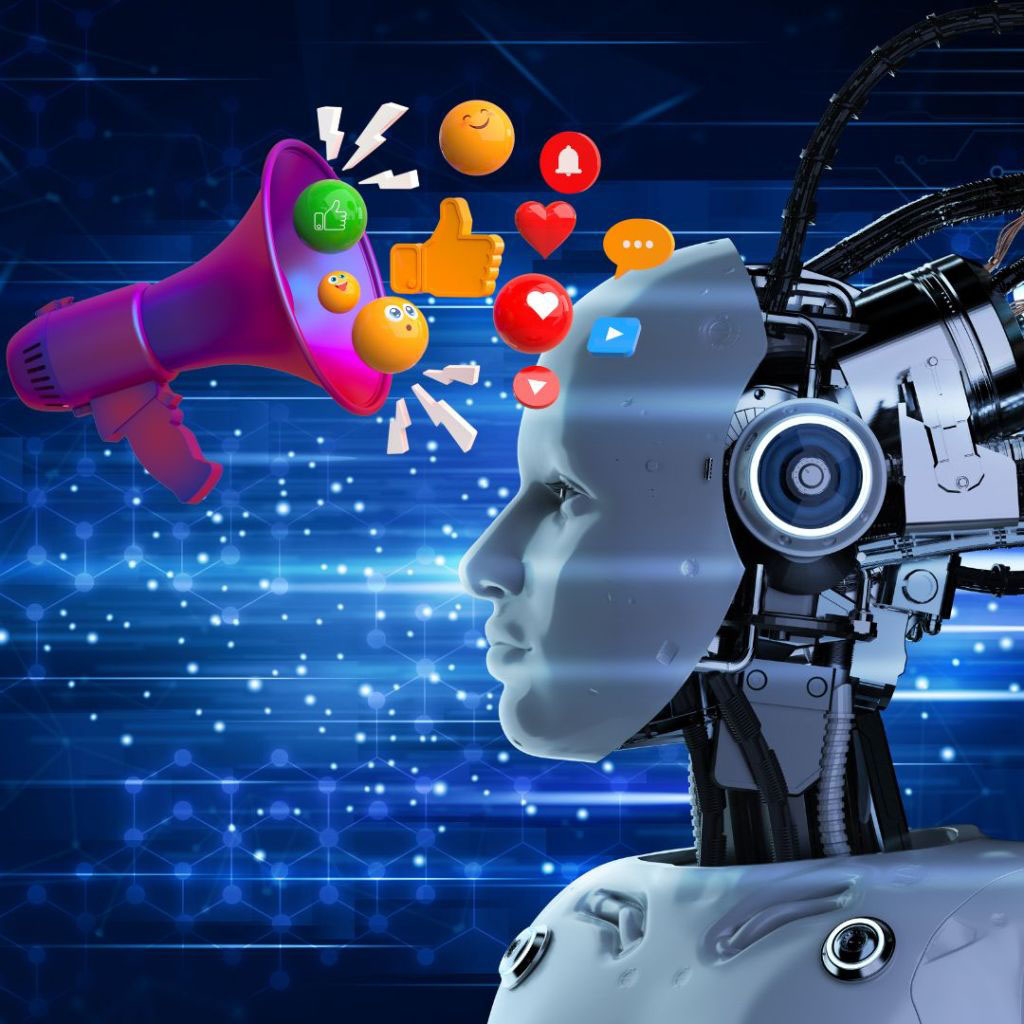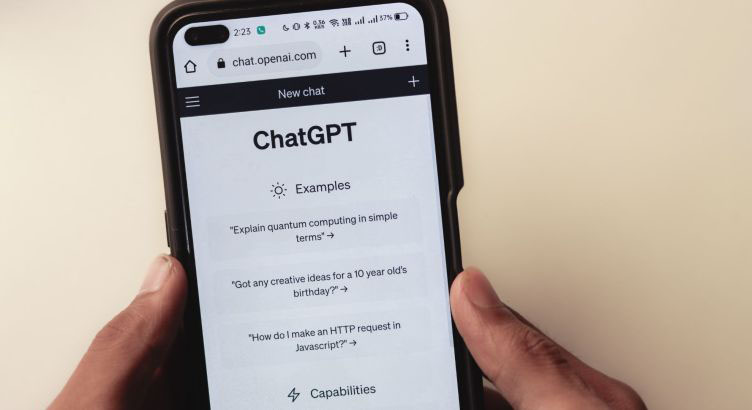Artificial Intelligence (AI) has quickly gone from science fiction to a daily part of our lives. Artificial intelligence has transformed technology, from driverless cars to voice assistants. AI has changed digital marketing as well as customer experiences. We’ll explore AI’s most inspiring and inventive digital marketing uses in this piece, showing how organizations across industries use this technology to improve their marketing.
AI in Social Media Marketing
Sephora’s AI Chatbot-powered Shopping Service
Sephora, a leading cosmetics brand, recognized the power of AI early on and harnessed chatbot technology to provide personalized and informative customer experiences. Sephora introduced an interactive quiz powered by chatbots to address the challenge of overwhelming product choices. These chatbots offer tailored tips and suggestions based on user responses. The success of this initiative led to the launch of Sephora’s chatbot-powered shopping service via Facebook Messenger, which includes features like a virtual color match assistant and an autonomous makeup tips expert. Sephora’s AI-powered approach has improved the shopping experience and boosted customer engagement and satisfaction.
Ada’s AI-powered platform for social media engagement and customer support
Ada, an innovative AI technology provider, offers a fully-tailored platform that automates customer support tasks and enhances social media engagement. Ada’s AI-powered technology can adopt a conversational tone, enabling brands to communicate efficiently with their customers across various social media channels. Ada’s AI-powered solutions, for instance, helped the brand reach new foreign markets, interact with customers on Facebook Messenger, and work with Grab, a Malaysian ride-hailing service. By implementing an AI-powered method, grab realized significant cost reductions and a 90% reduction in customer question backlog.

AI in Marketing Automation
Starbucks’ AI Voice-powered Barista Services
With the rise of voice technology, Starbucks integrated its popular app with Amazon’s Alexa to offer customers the convenience of voice-powered ordering and customization. The “My Starbucks Barista” service allows users to place and modify orders and select pickup locations seamlessly. Starbucks also introduced AI-powered Mastrena II espresso makers in its outlets to further streamline the coffee-making process. These machines complement the pre-ordering capabilities of the app, resulting in a consistent and efficient coffee experience. With millions of mobile customers, Starbucks’ AI initiatives have driven substantial growth and engagement worldwide.
Lowe’s AI-powered Personal Shopping Assistants
Hardware giant Lowe’s introduced the LoweBot, an AI-powered personal shopping assistant, to enhance the in-store shopping experience. The LoweBot offers customers personalized suggestions and tailored information as they navigate the store. Additionally, by tracking stock and inventory in real-time, AI-driven technology provides valuable insights into consumer shopping trends. Lowe’s leverages these insights to optimize its marketing strategies and deliver relevant content to its target audience.
AI in Digital Advertising
The Economist’s Innovative Targeted AI Ad Content Delivery
The Economist, a respected digital publication, leveraged AI-driven programmatic advertising to overcome a decline in its audience. By capturing and analyzing consumer data, The Economist identified a segment of reluctant readers and developed better approaches to engage them online. The publication created lookalike audiences through matching cookies, subscribers, and additional data sets, significantly increasing readership. This innovative campaign attracted 3.6 million new readers, achieving an impressive return on investment. The Economist’s data-driven, AI-centered business model has continued to drive subscriber growth, even in challenging times.

Heinz’s AI Image Generator for Iconic Ketchup Advertising
After the success of the “Draw Ketchup” campaign, Heinz utilized AI image generators to promote its iconic ketchup further. Employees and fans were invited to request AI-generated artistic interpretations of the bottle, resulting in many engaging and eye-catching designs. These visuals served as advertising assets across various channels, showcasing Heinz’s creative use of modern digital technologies .
Nike’s Emotionally-driven AI-powered Advertising
As a leading sports brand, Nike leverages AI technology to create emotionally resonant advertising campaigns. By analyzing specific audience segments’ emotional intelligence and traits, Nike crafts ad content that deeply connects with consumers and creates compelling narratives. For example, Nike’s campaigns featuring Serena Williams and celebrating women in sports were developed with the help of AI-powered emotional analysis technology.
AI in Content Personalization
Netflix’s AI-centric User Content Suggestion Tool
Netflix, the streaming giant, recommends content using AI-driven machine learning . Netflix customizes its service based on user preferences and viewing history, improving our experience. Netflix employs AI to maximize streaming quality and prevent buffering, assuring smooth playback.
Nestle’s AI-powered Content Personalization Platform
The multinational food and beverage conglomerate Nestle uses natural language processing (NLP) technology to provide customized content for diverse audience segments. By understanding and analyzing customer data, Nestle creates personalized communications and delivers valuable insights to its customers. This data-driven approach has enabled Nestle to transform insights into action, resulting in sales and customer satisfaction advancements.

AI in Digital Marketing: The Future
AI has already reshaped the digital marketing landscape , augmenting human capabilities, automating routine tasks, and providing valuable insights. Creativity, strategy, and relationship building will continue to be essential to successful digital marketing campaigns. As businesses embrace AI and leverage its potential, the possibilities for growth, evolution, and ongoing success in the digital landscape are limitless.
Learning new skills and expertise is essential in the ever-changing digital marketing industry. Join DMI’s Professional Diploma in Digital Marketing to study the latest digital marketing skills, including SEO, website optimization, Google Analytics, PPC, social media, AI, and email marketing. This comprehensive curriculum will teach you how to run great digital campaigns and boost your career.
FAQ’s
1. What is digital marketing AI?
Digital marketing uses AI technologies and algorithms to automate and improve marketing activities. It analyzes massive amounts of data, makes predictions, and optimizes marketing campaigns using machine learning, NLP, and data analytics.
2. How does AI help digital marketing?
Digital marketing benefits from AI. Automation saves time and effort in data analysis and content development. AI systems can evaluate customer data to identify preferences and behaviors, helping marketers personalize advertising. AI optimizes advertising, lead generation, and customer experience.
3. Examples of AI in digital marketing?
Digital marketing has several AI instances. AI-powered chatbots can engage website visitors and provide real-time customer care. AI algorithms can recommend personalized products and content based on customer behavior. Programmatic advertising may optimize ad placements and target specific audiences with AI.
4. Is AI limited in digital marketing?
Despite its benefits, AI has drawbacks. Data quality and significant data are essential for AI systems to provide correct insights. AI algorithms may misinterpret human behavior and make erroneous predictions or recommendations. Finally, AI deployment requires skilled workers, infrastructure, and training.
5. How can businesses use AI in digital marketing?
Businesses can integrate AI into digital marketing campaigns by identifying areas where AI can add the most outstanding value, such as consumer segmentation, personalized recommendations, or automated content generation. They can buy AI tools or platforms or work with AI service providers. AI in digital marketing requires a thorough awareness of data requirements, protection, and security.

AI has revolutionized digital marketing , offering incredible rewards in terms of growth, development, and ongoing success. By adopting AI technology creatively and with a customer-centric approach, businesses can enhance their marketing efforts and stay ahead in an increasingly competitive digital landscape. As the future unfolds, the integration of AI and human expertise will continue to shape the digital marketing industry, enabling businesses to deliver personalized experiences and drive meaningful connections with their target audience.



